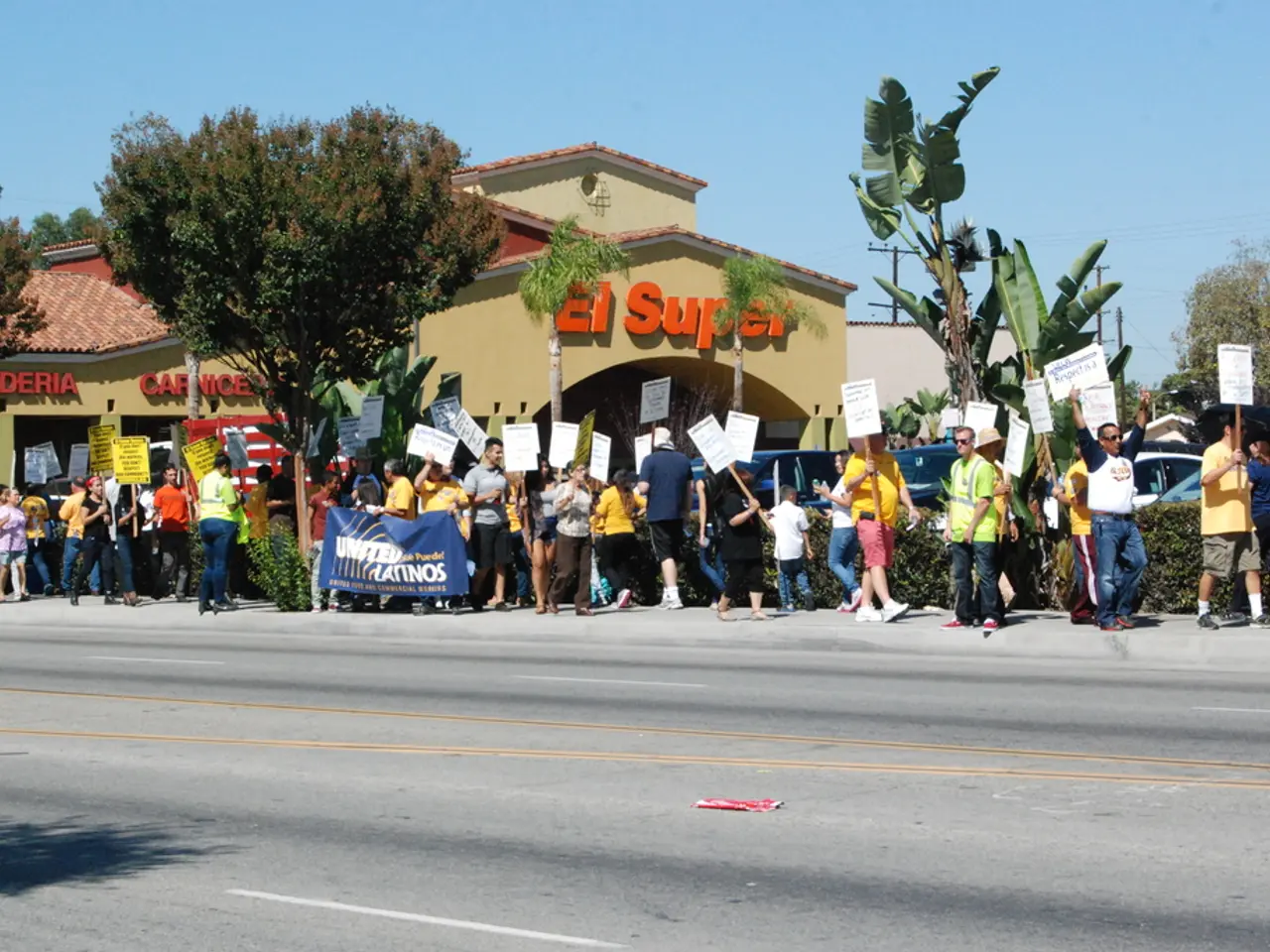Navigating Successful Political Campaigns through Social Media Mastery
In the digital age, political campaigning has undergone a significant transformation, with social media platforms playing a pivotal role. The strategic use of Facebook, Instagram, YouTube, X (formerly Twitter), and WhatsApp is now known as social media campaigning, a powerful tool for connecting with voters, disseminating messages, and fostering engagement.
To effectively implement social media campaigning, political leaders should consider the following strategies.
**Crafting Compelling Narratives**
Emotional engagement is key to building connections with voters. Sharing personal anecdotes and behind-the-scenes content can create a sense of intimacy and make voters feel involved in the political process. Storytelling that resonates with various segments of the electorate is also crucial, with interactive content fostering deeper connections and encouraging voter participation. Real-time adaptations allow messages to be tailored to changes in political discourse and engage with voter feedback.
**Voter Engagement and Interaction**
Interactive content such as polls, Q&A sessions, and live discussions encourage active participation from voters, helping to build a loyal supporter base. Personalized outreach, achieved through targeted messaging based on electoral analytics, increases the likelihood of engagement and informs voters about relevant issues.
**Crisis Management**
In crisis situations, a prompt and transparent response is essential. Social media can be used to address issues immediately and provide community reassurance. AI-powered tools can monitor social media conversations and predict potential crises, allowing for proactive management and mitigation.
**Leveraging Influencers and Online Presence**
Partnering with social media influencers can help reach broader audiences, particularly in low-turnout races where hyper-engaged voters can make a significant impact. Humour and memes can be used strategically to engage audiences and counter opponents in a way that appeals to younger voters.
**Budget Allocation**
Online ad spending should be substantial, as online ads have proven highly effective in reaching and persuading voters. Focusing spending on major platforms like Meta, Google, and TikTok, where the majority of online ad spending occurs and where key demographics are most active, is crucial.
**Social Listening, Data Analytics, and Paid Campaigns**
Social listening tools help political teams respond proactively to public sentiment, trending issues, and mentions. Data analytics can refine content strategies and optimize audience targeting by tracking engagement, sentiment, reach, and demographics. Paid campaigns can expand reach, target specific voter groups, promote issues, and boost visibility during critical phases.
By consistently posting authentic, engaging, and issue-relevant content while interacting with followers and maintaining a straightforward narrative, political leaders can build a strong social media presence. In doing so, they can effectively leverage social media to build support, engage voters, and manage their online presence in the digital age.
- Analytics can be utilized to optimize audience targeting by tracking engagement, sentiment, reach, and demographics, thereby refining content strategies in social media campaigns.
- In the digital age, the strategic use of influencers and humour, particularly through memes, can help political leaders appeal to younger voters and expand their reach on social media platforms.
- Crisis situations require prompt and transparent responses on social media, as AI-powered tools can monitor conversations and predict potential crises, allowing for proactive management and mitigation.
- To counter disinformation and maintain credibility, politicians should focus on sharing general-news and factual content on social media alongside their own campaigns and messages, positioning themselves as reliable sources of information in the digital era.




